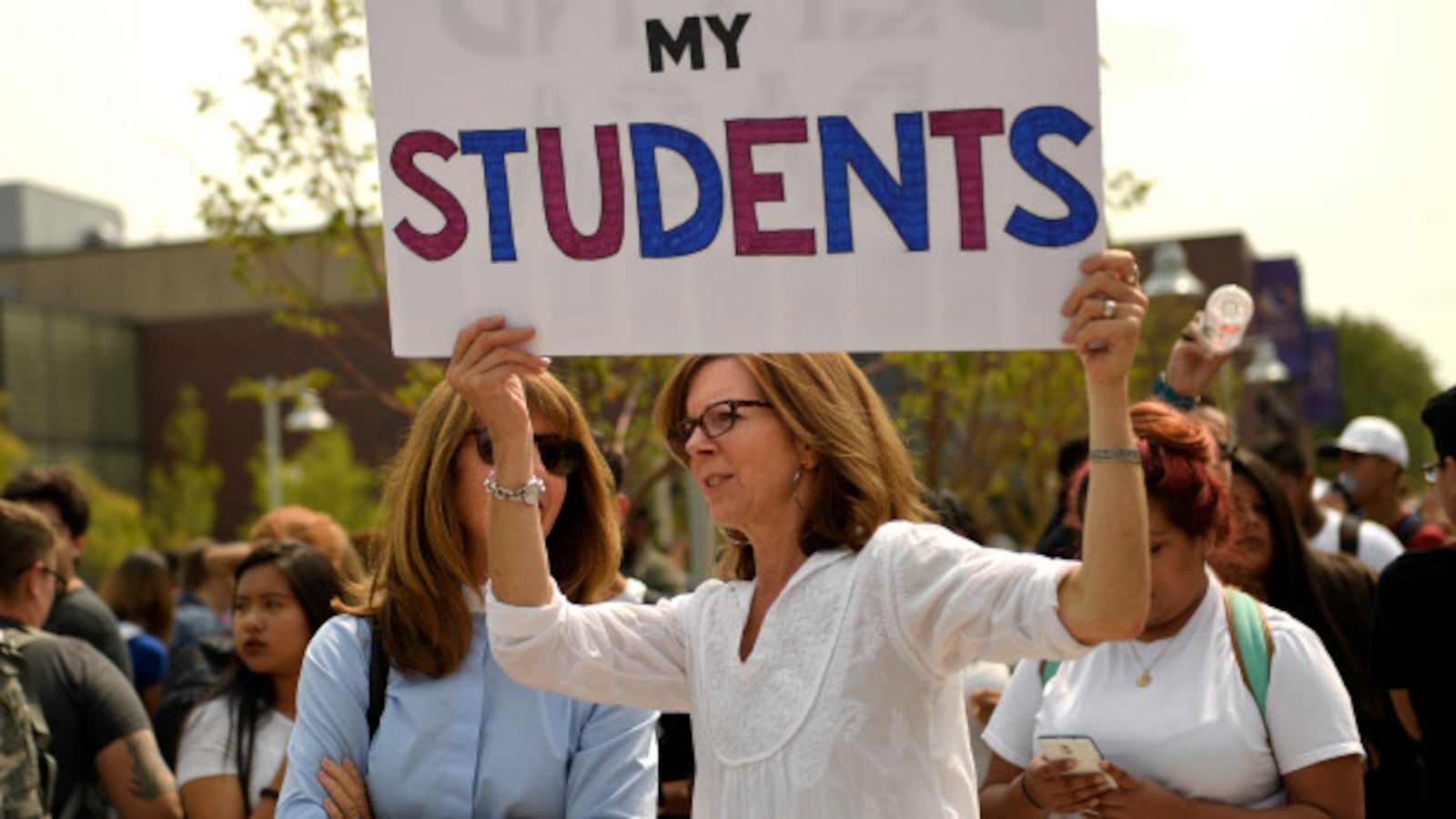Giving undocumented young people protection from deportation came with a big education bonus: It made them more likely to finish high school and enter college, according to a study released earlier this week.
It’s new evidence suggesting that the Deferred Action for Childhood Arrivals program, or DACA, benefits individual students as well as society as a whole — and comes as Congress continues to debate the fate of DACA recipients. Education advocates from a variety of perspectives have called for extending the program for both human rights and educational reasons.
“America is a nation that welcomes Dreamers and their many talents,” the National Education Association’s head Lily Eskelsen García said late last year. “When we embrace their contributions, the future is brighter for all of us.”
The paper, released through the National Bureau of Economic Research, examined the effects of the DACA program. Put in place by President Obama in 2012, DACA offered work permit eligibility and protection from deportation to certain undocumented immigrants who had entered the country as children. (The move was also criticized at the time as an overreach of executive power.)
DACA’s existence led to a number of benefits, the researchers find. In some cases, they appeared immediately.
High school graduation rates increased by nearly 4 percentage points among all non-citizens and nearly 11 percentage points among Hispanic students. College enrollment among Hispanic non-citizens jumped by over 7 percentage points — a more surprising finding, since DACA directly encouraged high school graduation but not college enrollment.
In addition to the academic benefits, the study also finds teenage pregnancy rates dropped and upticks in work among 17- to 29-year-olds.
“We find that these young adults … attended school and worked more, often at the same time,” write researchers Elira Kuka, Na’ama Shenhav, and Kevin Shih.
(The researchers focus on non-citizens because they do not have data on which specific students are undocumented. Non-citizens encompass students who could potentially benefit from DACA.)
The results make sense in light of the uncertainty those students faced prior to DACA, when they would have been blocked from working legally in addition to facing the stress of potential deportation.
Anecdotes back this up. Angélica Infante Green, a New York State education official, and Susana Cordova of Denver Public Schools described one student who benefitted from the program in a recent op-ed: “Take ‘Carlos,’ who graduated top of his class at Stuyvesant [High School]. Before DACA, the only opportunity Carlos had after graduation was to work for his family. Now he’s going to college and excelling academically.”
However, the study does contrast with some prior research on the topic.
Another paper found that although DACA did increase rates of GED attainment and chances of having a job, it didn’t boost rates of attending college. A different study found that DACA increased students’ likelihood of dropping out of a four-year college in favor of work, because it is a work permit program.
“The results suggest that the precarious and temporary nature of DACA creates barriers to educational investments,” that study found.
In that sense, a more permanent solution may be even more likely to lead to educational gains.
Meanwhile, after Trump’s decision last September to end DACA, effective in early March, it’s been the subject of legal wrangling. On Tuesday, a second federal judge ruled against the Trump administration’s plan to end the program. Congress has debated this issue extensively, with some Republicans wanting to tie an extension of the program to additional border security and a border wall. Senate Majority Leader Mitch McConnell has imposed a deadline for this week to hammer out a deal.
We’ll see if the latest study figures into the debate.
“In part, the controversy over this policy stems over fears that that undocumented immigrants may bring undesirable attributes to communities — for example, low levels of education and high levels of teenage births,” the researchers write. “Our findings suggest that immigration policy that includes incentives for education can lead to improvements in each of these areas of concern; a reversal of this policy may overturn those gains.”


